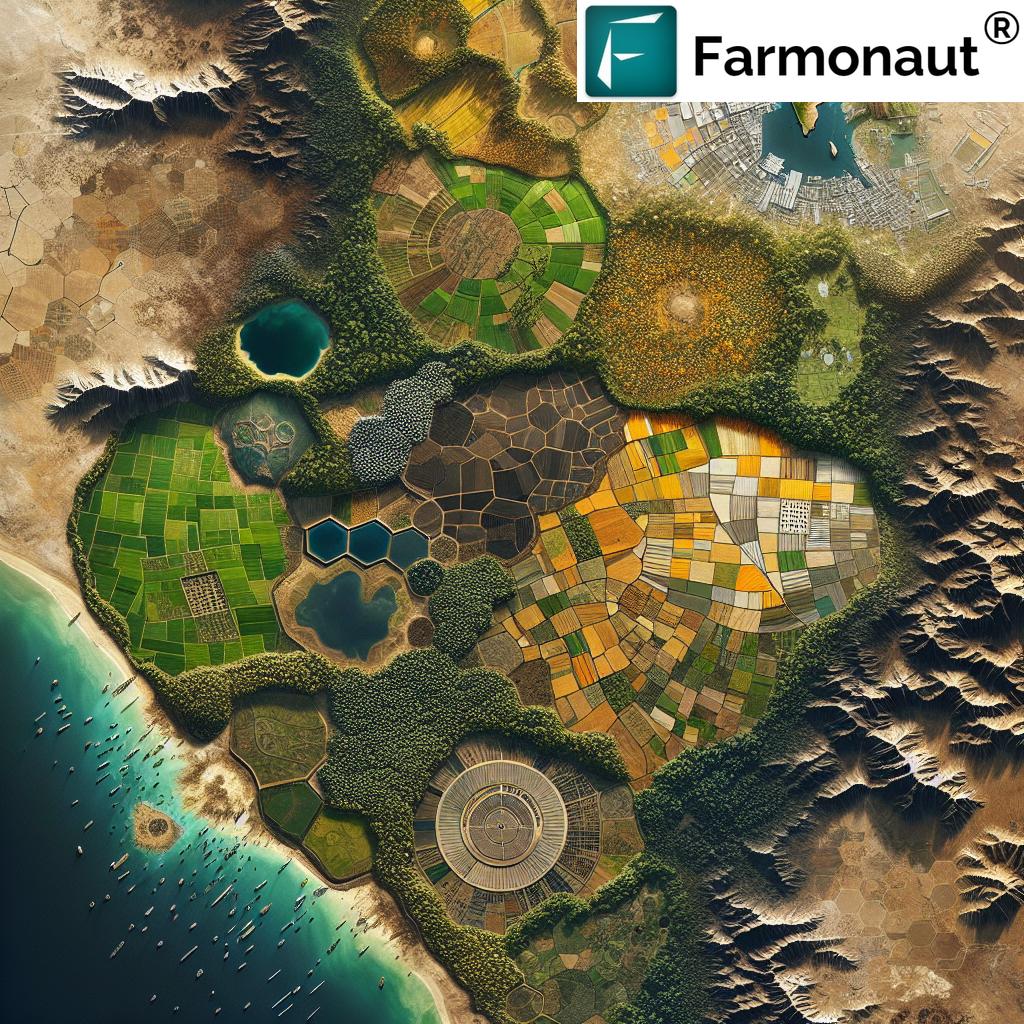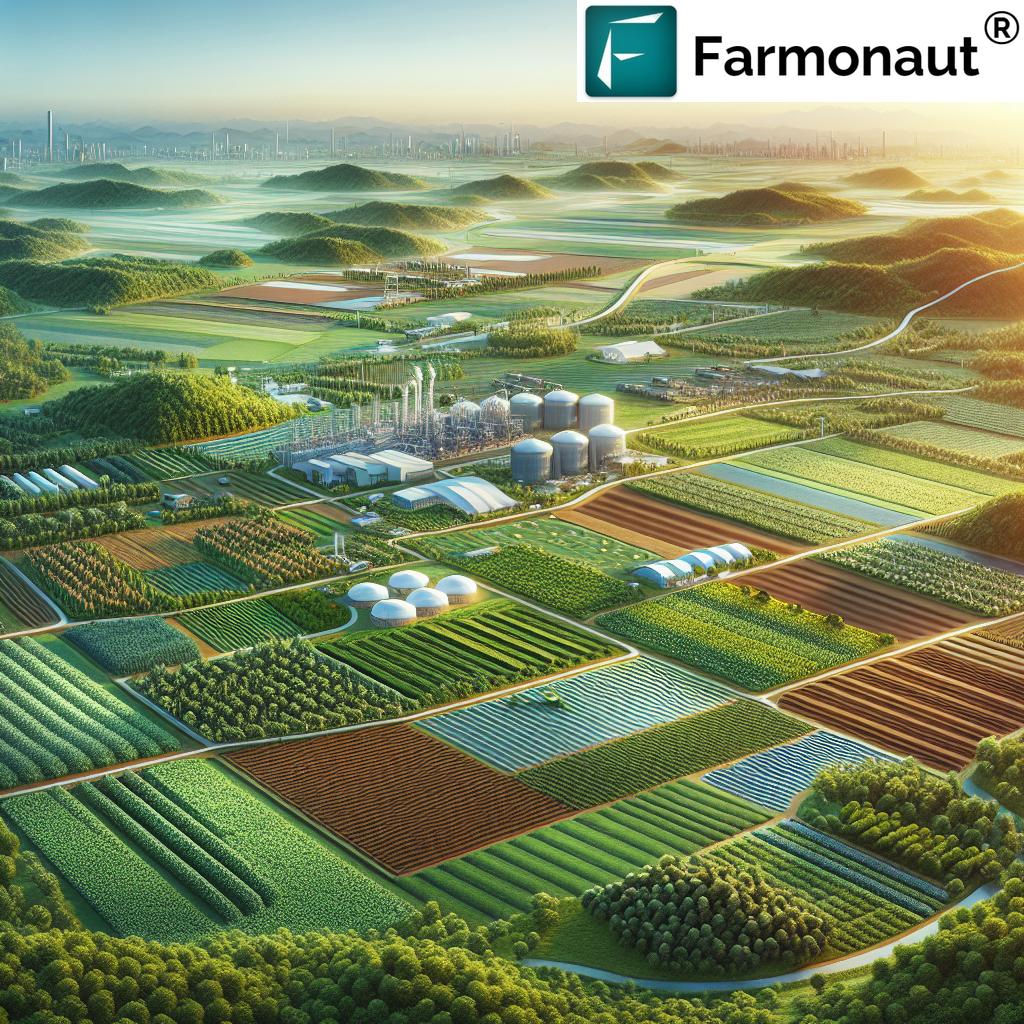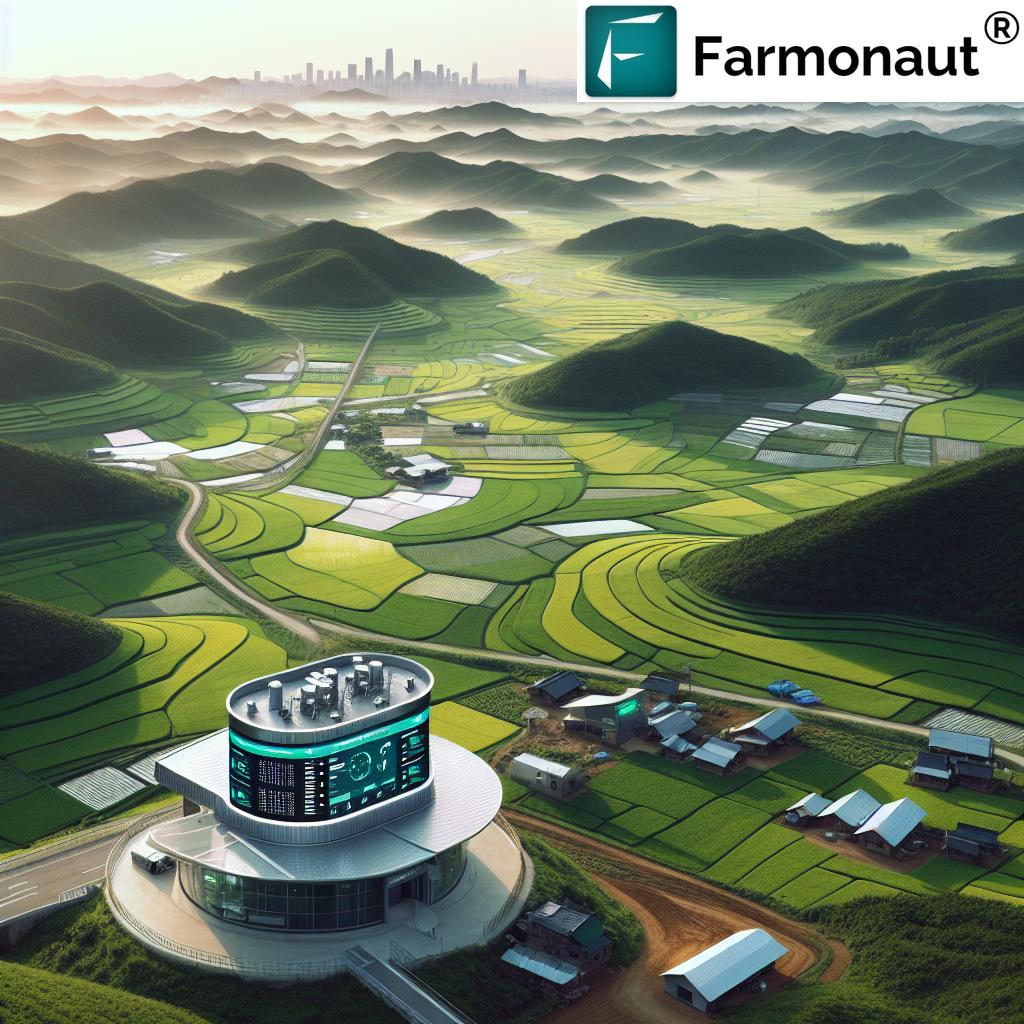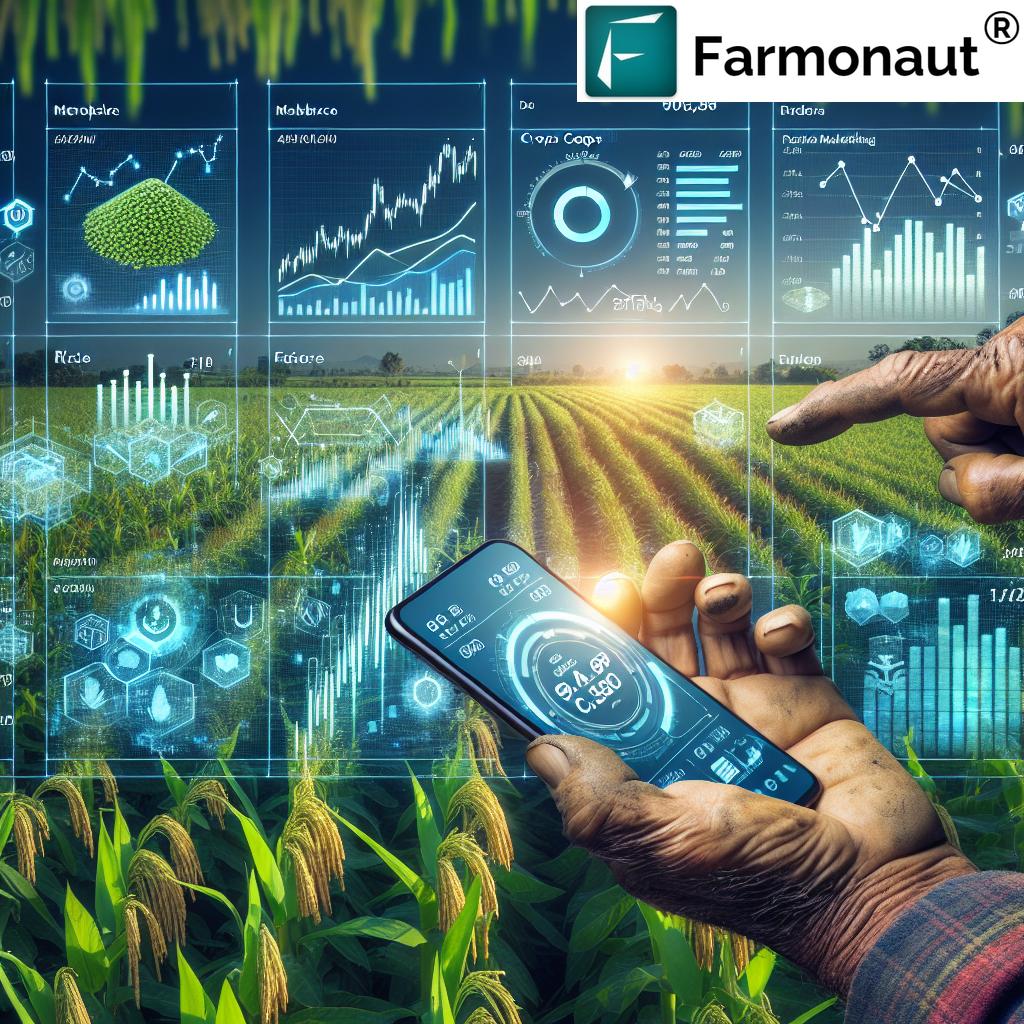“Bangalore’s managed farmland projects are projected to grow by 30% in 2025, driven by sustainable agriculture demand.”
Managed Farmland Projects Bangalore: 2025 Growth Guide
Summary: Managed Farmland Projects in Bangalore—The Emerging Frontier of Sustainable Agriculture in 2025
In 2025, managed farmland projects in Bangalore have become synonymous with innovation, sustainability, and promising investment prospects. As urbanization rapidly transforms the North Bangalore landscape, the region’s agricultural assets are at a pivotal crossroad—balancing the surging demand for food, environmental stewardship, and economic returns. These managed farmland projects near Bangalore offer a dynamic solution for investors, agripreneurs, and urban dwellers seeking both profit and purpose from their agricultural investments. This comprehensive guide navigates you through the evolving scenario of farmland projects Bangalore, highlighting everything from advanced technology to ECO-certified practices, and provides actionable insights for those eyeing India’s next agri-frontier.
Table of Contents
- Introduction: The 2025 Farmland Evolution Around Bangalore
- Why Managed Farmland Projects Near Bangalore Are Gaining Traction
- Understanding the Managed Farmland Model
- Managed Farmland Projects North Bangalore—A Strategic Agricultural Hub
- Technological Innovations Shaping Managed Farmland in 2025
- Sustainability & Eco-Friendly Practices: Beyond Conventional Farming
- Investment Landscape: Financial Viability and Market Returns
- Opportunities for Urban Investors & Agripreneurs
- Key Managed Farmland Projects near Bangalore in 2025—Comparison Table
- Challenges and Risks in the 2025 Farmland Market
- How Satellite Technology from Farmonaut Empowers Farmland Projects
- Choosing the Right Managed Farmland Project: Step-by-Step Guide
- The Road Ahead: Trends & Outlook Beyond 2025
- Frequently Asked Questions (FAQ)
- Conclusion: Embracing the Emerging Frontier of Sustainable Agriculture
Introduction: The 2025 Farmland Evolution Around Bangalore
The Bangalore region sits at the epicenter of one of India’s most dramatic agricultural transformations. In recent years, managed farmland projects Bangalore have rapidly grown in prominence, offering innovative responses to challenges posed by escalating urban sprawl, climate change, and resource constraints.
By 2025, managed farmland projects near Bangalore are expected to experience a significant surge, both in number and scope, due to:
- The burgeoning interest of urban investors seeking sustainable asset classes
- Government and policy support for agricultural and environmental initiatives
- The emergence of advanced technology powering efficient, data-driven agriculture
As one of India’s most vital economic and innovation hubs, Bangalore is uniquely poised to blend modern agri-technology with traditional stewardship, creating thriving ecosystems that represent the next frontier for sustainable agriculture.
Why Managed Farmland Projects Near Bangalore Are Gaining Traction
Managed farmland projects near Bangalore, particularly in North Bangalore, have experienced a dramatic rise in interest and investment. Understanding this growth requires delving into the driving forces behind this trend:
- Urbanization Transforms the Landscape: As Bangalore’s metropolitan expansion continues, farmland near the city retains strategic importance for both food supply and sustainable land stewardship—becoming a viable solution for balancing economic growth and environmental health.
- Resource Efficiency: The demand for efficient, professionally-managed agricultural operations is rising. Investors, city dwellers, and agripreneurs see managed farmland projects Bangalore as a way to benefit from high-yield agricultural assets without the burden of hands-on daily involvement.
- Sustainability & Food Security: The imperative to ensure food security and environmental sustainability is pushing both government and private actors towards managed farmland projects in North Bangalore that employ eco-friendly agricultural practices.
- Technology Adoption: Integration of advanced tools such as IoT, AI-based analytics, precision irrigation, and satellite monitoring is streamlining farming operations and maximizing returns.
The result: a new agricultural model combining professional management, advanced technology, and sustainable practices—aligned with the demands of 2025 and beyond.
“Over 60% of new farmland projects near Bangalore in 2025 will adopt eco-friendly and advanced agricultural practices.”
Understanding the Managed Farmland Model
The managed farmland project model is fundamentally reshaping how land in and around Bangalore is put to agricultural use. Here’s how the typical model works in 2025:
- Professional Oversight: Projects are overseen by experts in modern agricultural practices. These professionals handle soil health analysis, pest management, scientific crop rotation, and yield optimization.
- Remote and Direct Management: While traditional farming requires landowners to be present, the managed model enables “ownership without direct daily involvement” through digital dashboards, reporting, and on-ground teams.
- Sustainable Value Creation: By prioritizing organic farming, water conservation, and soil renewal, these projects maintain land fertility and biodiversity.
- Market Linkages: Specific attention is given to “crop selection and strong linkages with urban markets,” improving financial returns and risk diversification.
The end goal is clear: enhance productivity while maintaining environmental and financial viability, making farmland a future-ready, attractive asset for the region.
Focus Keyword: Managed Farmland Projects North Bangalore—A Strategic Agricultural Hub
Why is North Bangalore the focus for managed farmland projects in 2025? The answer lies in a blend of factors that make this region an agricultural goldmine for the coming decade.
- Proximity to Urban Markets: Location is everything. North Bangalore’s farmland provides direct access to the city’s lucrative consumer base, efficient logistics, and a short supply chain from farm to table.
- Robust Infrastructure: Recent road and cold storage development in this region ensures that produce reaches markets while still fresh, boosting price realisation and reducing post-harvest losses.
- Favourable Climate and Soil: The region’s moderate temperatures, fertile soils, and balanced rainfall make it ideal for diverse cropping patterns—vegetables, horticulture, floriculture, and even medicinal plants.
- Policy and Institutional Support: State government frameworks are increasingly supporting sustainable development and farmland project registration in North Bangalore. This bodes well for investors looking for ease of doing business and regulatory backing.
- Land Availability and Accessibility: Despite the city’s expansion, land in North Bangalore is still relatively accessible—thus attracting new projects and diversified investor profiles.
Combined, these advantages make farmland projects north Bangalore a compelling option for anyone seeking sustainable investment, agri-entrepreneurship or secure long-term asset appreciation.
Technological Innovations Shaping Managed Farmland Projects Near Bangalore in 2025
A progressive approach to agriculture distinguishes managed farmland projects Bangalore from conventional, hands-on farming of the past. In 2025, several advanced technologies power the new farming ecosystem:
- IoT Sensors & Precision Farming: Embedded soil and weather sensors track soil moisture, temperature, and nutrient levels, allowing for optimized irrigation and fertilizer application.
- Drone Surveillance & AI: Drones equipped with multispectral imaging map entire farms, detect disease outbreaks, pest infestations and crop stress early, and improve yield forecasting. AI systems analyze huge data sets, offering decision support in real time.
- Remote Sensing & Satellite Monitoring: Satellite imagery provides a bird’s-eye view of vegetation health, soil dynamics, and microclimate changes—vital for large, dispersed landholdings.
- Automated Irrigation Systems: Drip and sprinkler systems tied to live sensor data are fast becoming the norm, reducing water wastage and optimizing resource use.
- Blockchain-Based Traceability: Integrated traceability platforms record every stage of a crop’s journey—from planting to packaging to transport—enabling trust and transparency in the supply chain and supporting premium pricing for credible organic produce.
These technologies work in concert to maximize productivity while minimizing environmental impact, ensuring that farmland in and around Bangalore is both commercially viable and ecologically responsible in 2025.
Sustainability & Eco-Friendly Practices: Beyond Conventional Farming in Bangalore
Nearly all managed farmland projects near Bangalore in 2025 receive high marks for sustainable agricultural practices—a major draw for urban investors and discerning consumers. Here’s why and how sustainability is prioritized:
- Organic Farming: A significant proportion of projects now follow or are in the process of acquiring organic certification. This means no chemical pesticides or synthetic fertilizers, protection of soil microbes, and a healthier ecosystem for pollinators and local fauna.
- Soil Conservation & Regeneration: Projects employ cover crops, mulching, crop rotation, composting, and other techniques to prevent soil erosion and build long-term fertility.
- Rainwater Harvesting & Water Management: Rainwater is increasingly captured and stored for efficient irrigation, reducing the draw on local aquifers and municipal supply.
- Agroforestry & Biodiversity: Many projects integrate fruit trees, timber, and medicinal species alongside food crops, promoting biodiversity and providing additional income streams.
- Carbon Footprint Monitoring: The trend toward tracking, reporting, and reducing the carbon footprint of farming operations is rapidly rising. For detailed guidance on how this impacts your investment or operation, visit Farmonaut’s Carbon Footprinting Solution.
In 2025, sustainable practices are not just a bonus—they are essential to the ongoing success, profitability, and marketability of farmland projects around Bangalore.
Investment Landscape: Financial Viability and Market Returns in Managed Farmland Projects Bangalore
Managed farmland projects near Bangalore in 2025 offer different models for investing and revenue generation:
- Direct Ownership Model: Investors purchase a plot within a larger farmland project, with the option for partial or full management service.
- Revenue Sharing Model: Instead of owning land outright, urban investors share crop revenues according to their investment, reducing risk and increasing diversification.
- Long-Term Leasing with Buyback: For those unsure about long-term landholding, certain projects offer secure leasing arrangements with fixed returns or buyback clauses.
Key Financial Advantages:
- Professional Crop Selection: Managed projects employ expert overseers to select crops with optimal market demand—ranging from horticulture and vegetables to organic grains and exotic floriculture.
- Market Linkages: By forging relationships with retailers, food processors, and restaurants in Bangalore city, projects ensure higher price realization and consistent returns.
- Risk Mitigation: Crop insurance, weather analytics, and resource management tools further de-risk investments. Learn more about Farmland Crop Loan and Insurance Solutions.
Typical returns for managed farmland projects Bangalore in 2025 range from 8% to 15% per annum, with added value from land appreciation, carbon credits, and high-demand organic produce. Investors seeking more detailed financial analytics can take advantage of dedicated data modules in management apps or reach out to the project administration team.
Opportunities for Urban Investors & Agripreneurs in Farmland Projects Near Bangalore
With urban wealth seeking green alternatives, and millennials embracing sustainable investment models, managed farmland projects near Bangalore are increasingly attractive. Here’s why:
- Passive Ownership: No need for daily involvement—management teams, digital dashboards, and real-time monitoring give investors control and transparency.
- Diversification: Land-backed, inflation-resistant assets diversify portfolios otherwise dominated by equities, mutual funds or real estate.
- Eco-Aligned Investment: Investing in projects underpinned by organic and regenerative practices aligns with the values of a growing market segment prioritizing ESG (Environmental, Social, Governance) outcomes.
- Access to New-age Crops and Food Value Chains: Projects offer exposure to emerging segments like medicinal plants, superfoods, floriculture, and export-grade organic grains.
If you are considering deeper engagement, innovative management solutions make large-scale multi-crop, multi-location oversight possible. Explore Large Scale Farm Management Tools for high-impact administration and analytics.
Key Managed Farmland Projects near Bangalore in 2025—Comparison Table
| Project Name | Location (Distance from Bangalore) | Estimated Project Size (Acres) | Main Crop Types | Sustainability Practices | Advanced Technology Utilized | Estimated Annual ROI (%) | Investment Range (INR) |
|---|---|---|---|---|---|---|---|
| EcoHarvest Valley | Devanahalli (38 km North) | 120 | Horticulture, Organic Vegetables | Organic Certified, Rainwater Harvesting | IoT Sensors, Drip Irrigation, AI Analytics | 10-14 | 25L–2.5Cr |
| GreenSphere Farms | Doddaballapur (42 km North) | 85 | Medicinal Plants, Millet, Superfoods | Agroforestry, Soil Regeneration | Remote Sensing, Drone Surveillance | 9-13 | 30L–1.8Cr |
| BlueRoots Estate | Chikkaballapur (55 km North) | 70 | Exotic Fruits, Floriculture | Organic, Biodiverse Planting | Satellite Monitoring, Automated Irrigation | 11-15 | 20L–2Cr |
| Bangalore FreshFields | Yelahanka (25 km North) | 60 | Vegetables, Spices | Composting, Conservation Tillage | Drone Mapping, Blockchain Traceability | 8-12 | 18L–1.2Cr |
| TruGreen Agro Park | Tumakuru Road (70 km NW) | 200 | Rice, Pulses, Bamboo | Integrated Pest Management | AI-Based Crop Monitoring, Fleet Management | 9-13 | 22L–2.8Cr |
*Note: Project names and data are representative and illustrate common features sought by investors in 2025. Land prices, ROI, and features may vary project to project.
Challenges and Risks in the 2025 Farmland Market Around Bangalore
Despite the immense promise of managed farmland projects Bangalore, there are clear challenges and risks that must be addressed for sustainable development:
- Rising Land Costs: Rapidly increasing demand and proximity to Bangalore city are pushing land prices higher, impacting capital outlay for new investors.
- Water Scarcity: Although advanced irrigation helps, certain North Bangalore micro-regions face periodic water shortages. Projects must focus on robust water management and rainwater harvesting.
- Regulatory and Zoning Issues: Transitioning land from non-agricultural to agricultural use, especially in fast-developing zones, requires navigating approvals and compliance.
- Operational Oversight: Large-scale projects rely on the consistent performance of field teams and management. Training programs and clear SOPs (Standard Operating Procedures) are vital to reduced operational risks.
- Climate Change Challenges: Fluctuations in rainfall, high temperatures, and new pest invasions can impact yields and operational cost structures. Satellite-driven forecasting and crop advisory solutions (like those available via the Farmonaut App) are increasingly used to mitigate such risks.
Open communication between investors, management, and local authorities, coupled with tech-driven monitoring, provides a path to overcoming these challenges in 2025 and beyond.
How Satellite Technology from Farmonaut Empowers Farmland Projects
Satellite-driven insights have become a game-changer for managed farmland projects around Bangalore. We at Farmonaut are at the forefront, delivering tools and intelligence that make land and resource management more affordable, accessible, and actionable for every stakeholder—investors, farm managers, and administrators alike. Here’s how our platform supports sustainable farmland projects:
- Real-Time Crop Health Monitoring: We provide satellite maps showing NDVI (Normalized Difference Vegetation Index), soil moisture, and vegetation density—enabling instant diagnosis of health issues and targeted interventions for higher yields.
- AI-Based Advisory via Jeevn: Our Jeevn AI system leverages satellite data to deliver real-time, farm-specific recommendations related to planting, irrigation, input usage, and pest/disease management.
- Blockchain-Based Product Traceability: For those prioritizing supply chain transparency, our blockchain tools offer full traceability from field to consumer. Learn more about improving your product’s profile at Product Traceability Solutions.
- Environmental Impact Tracking: Carbon emissions, water usage, and biodiversity metrics are monitored in real time to ensure compliance and communicate sustainability credentials to urban markets and investors. Explore our Carbon Footprinting Product for eco-conscious farmland stewardship.
- Fleet & Resource Management: For projects with a wide spread, our tools optimize fleet movement and machinery use, reducing operational costs and emissions. Fleet Management Solutions offer seamless vehicle tracking and task allocation.
Our platform is accessible on:
You can also access our API for direct integration into your project’s custom dashboards and monitoring systems. API Access | Developer Docs
Whether you manage a small parcel in North Bangalore or oversee large-scale, multi-crop farms, our solutions are designed to reduce costs, improve decision-making, and promote environmental sustainability at every step.
Curious about subscriptions? Here’s a quick way to check our latest packages and options:
Choosing the Right Managed Farmland Project Near Bangalore: Step-by-Step
If you’re considering entry into the managed farmland projects Bangalore market for 2025, use this stepwise approach:
- Clarify Investment Goals: Are you seeking steady annual ROI, long-term capital gains, active involvement, or purely passive growth?
- Assess Location and Accessibility: Prioritize projects in North Bangalore regions with good road and logistics connectivity, access to water, and proximity to urban markets.
- Evaluate Sustainability Practices: Projects with organic certification, water conservation, and biodiversity promise both market and environmental benefits.
- Check Technology Adoption: Ask about remote monitoring, IoT, drone mapping, and satellite analytics for smooth, data-driven operations.
- Review Legal and Regulatory Compliance: Ensure clear land titles, proper zoning, and registration for farming use.
- Analyze Team Credentials: Look for agronomists, soil scientists, experienced farm managers, and a proven track record.
- Understand Revenue Models and Risk Sharing: Compare lease vs. ownership vs. revenue-sharing, as well as available insurance and market linkage benefits.
- Demand Transparency: Choose entities offering full traceability and real-time reporting (find out more at Farmonaut Traceability).
- Visit the Site: Physical inspections and conversations with neighbors help validate claims and assess local challenges.
By following these steps and arming yourself with clear questions, you can make confident, future-ready investment decisions in the Bangalore managed farmland ecosystem.
The Road Ahead: Trends & Outlook Beyond 2025
As the demand for managed farmland projects Bangalore intensifies, several clear trends are shaping the market for the remainder of the decade:
- Rapid Tech-Driven Expansion: Satellite insights, AI, and blockchain will become standard, not optional, for every major project.
- Policy Support & Incentives: Government backstops for sustainable agriculture, including subsidies, carbon credits, and organic transition grants, will fuel growth.
- Integration with Food Supply Chains: The direct-from-farm movement will gain traction, increasing demand for traceability and real-time supply chain visibility.
- Enhanced Urban-Farm Linkages: Urban consumers will connect more closely with their food sources through direct platforms, farm visits, and curated produce baskets from North Bangalore projects.
- Land Value Appreciation: Scarcity in peri-urban regions like North Bangalore will escalate land values and create a robust secondary market for farmland investments.
In sum, the managed farmland sector around Bangalore—anchored by North Bangalore’s accessibility, technology, and sustainability culture—will remain a frontier of growth, innovation, and ecological responsibility for years to come.
Frequently Asked Questions (FAQ) About Managed Farmland Projects Bangalore in 2025
1. What are managed farmland projects near Bangalore?
Managed farmland projects near Bangalore refer to agricultural land holdings offered to investors with professional end-to-end management, incorporating sustainable farming practices, advanced technology, and urban market linkages. Investors do not have to manage day-to-day agricultural operations—experts handle everything from crop selection and soil health to market supply.
2. How are managed farmland projects in North Bangalore different from those in other regions?
North Bangalore offers unmatched connectivity, climate suitability, and proximity to the city’s largest markets. This region also features leading sustainable and tech-driven projects.
3. Is investment in managed farmland a viable option for city dwellers?
Yes. Managed farmland projects provide passive income and asset diversification without requiring daily involvement, making them a perfect fit for urban investors.
4. What kind of technology is used in Bangalore’s managed farmland projects in 2025?
Projects use IoT sensors, drone surveillance, AI analytics, satellite-based monitoring, and blockchain traceability to maximize yields, maintain sustainability, and provide transparent reporting to investors.
5. What should I look for when choosing a project?
Assess location, sustainability credentials, technology integration, team expertise, market linkages, financial model, and transparency. Prioritize projects that provide access to management apps, satellite insights, and traceable supply chains.
6. How do I access satellite monitoring and advisory for my farmland project?
We at Farmonaut deliver affordable, real-time satellite-based insights through our web and mobile platforms, as well as via APIs for custom integrations.
7. Are there insurance or financing options for investors?
Yes. Many managed projects offer crop insurance and financing options supported by digital verification, such as those detailed in Farmonaut’s Crop Loan and Insurance module.
Conclusion: Embracing the Emerging Frontier of Sustainable Agriculture in Bangalore
The year 2025 marks a critical turning point for farmland projects near Bangalore. Managed farmland projects—especially in North Bangalore—stand at the intersection of sustainability, technology, and profitability. These projects:
- Offer urban investors reliable, professionally-managed, sustainable agri-assets
- Leverage the latest technology for precision farming and environmental stewardship
- Bridge the divide between modern market demand and traditional land use
- Create a thriving, eco-friendly agricultural ecosystem ready to meet future food security challenges
By choosing wisely and leveraging technology partners like us at Farmonaut, you can join the ranks of forward-looking land stewards, conscious investors, and change-making agripreneurs who are propelling Bangalore towards a sustainable food and land future.












